Ambassador Peter Jenkins analyzes the complexities of the Iranian nuclear dispute in light of the recent talks in Kazakhstan and evaluates the chances for progress.
Readers who recall that four years ago a new US President seemed eager to defuse the West’s quarrel with Iran over its nuclear activities may wonder why we are all still waiting for white smoke. I am not sure I know the answer, but I have a hunch it has something to do with a lack of realism on one side and a profound mistrust on the other.
The lack of realism is a Western failing. The US and the two European states, France and the UK, that still have the most influence on the EU’s Iran policy, ten years after the International Atomic Energy Agency (IAEA) first reported certain Iranian failures (long since corrected) to comply with nuclear safeguards obligations, are still reluctant to concede Iran’s right to possess a capacity to enrich uranium.
These Western powers know that the treaty which governs the use of nuclear technology for peaceful purposes, the Nuclear Non-Proliferation Treaty (NPT), does not prohibit the acquisition of uranium enrichment technology by the treaty’s Non-Nuclear-Weapon States (NNWS).
They know that several NNWS (Germany, the Netherlands, Japan, Brazil, Argentina, and South Africa) already possess this technology.
They know that the framers of the treaty envisaged that the monitoring of enrichment plants by IAEA inspectors would provide the UN Security Council with timely notice of any move by an NNWS to divert enriched uranium to the production of nuclear weapons.
Nonetheless, they cannot bring themselves to tell Iran they accept that Iran, as a NNWS party to the NPT, is entitled to enrich uranium, provided it does so for peaceful purposes, under IAEA supervision, and does not seek to divert any of the material produced.
One of the reasons for this goes back a long way. When India, a non-party to the NPT, detonated a nuclear device in 1974, US officials decided that it had been a mistake to produce a treaty, the NPT, which did not prohibit the acquisition of two dual-use technologies (so-called because they can be used either for peaceful or for military purposes) by NNWS.
The existence of a non-sequitur in their reasoning, since India was not a party to the NPT, seems not to have occurred to them. They set about persuading other states that were capable of supplying these technologies (uranium enrichment and the reprocessing of spent nuclear fuel) to withhold them from NNWS.
This could be defended, of course, on prudential grounds. However, it caused resentment among the NNWS who felt that their side of the NPT bargain was being eroded surreptitiously; ultimately, like all forms of prohibition, it was short-sighted, because it encouraged the development of a black market and enhanced the risk of clandestine programmes, unsupervised by the IAEA.
Denying Iran the right to enrich uranium, and trying to deprive Iran of technology that it had developed indigenously, (albeit with help from the black market), seemed more than prudential in 2003. It seemed a necessity, because at the time there were good reasons to think that Iran had a nuclear weapons programme.
Nevertheless, by 2008, the US intelligence community had concluded that Iran abandoned that programme in late 2003 and would only resume it if the benefits of doing so outweighed the costs.
Despite that and subsequent similar findings, this prohibitionist mind-set is still prevalent in Washington, Paris and London. It is one explanation for a lack of progress since President Obama first stretched out the hand of friendship four years ago.
Another explanation is Israel. Israel shares with North Korea, Pakistan and India the distinction of being one of only four states that do not adhere to the NPT. It nonetheless enjoys considerable influence over US, French and British nuclear non-proliferation policies. Israeli ministers are deeply opposed to Iran possessing a uranium enrichment capability.
They may or may not believe what they frequently claim: that Iran will use its enrichment plants to produce fissile material and will use that fissile material to attack Israel with nuclear weapons, directly or through Hezbollah. In reality, few outside Israel believe this, and many inside are sceptical. However, they do not want Israel’s room for military manoeuvre to be reduced by the existence of a south-west Asian state that could choose to withdraw from the NPT and seek to deter certain Israeli actions by threatening a nuclear response.
A third explanation is Saudi Arabia. Leading Saudis are as opposed as Israeli ministers to Iran retaining an enrichment capability. They are less inclined than Israelis to talk of this capability as posing an “existential” threat; but they share the Israeli fear that it will erode their options in the region. They also fear that it will enhance the regional prestige of their main political rival, an intolerable prospect – all the more so now that Iran and Saudi-Arabia are engaged in a proxy war in Syria that seems increasingly likely to re-ignite sectarian conflict in Iraq.
Finally, there remains strong hostility to Iran in some US quarters, notably Congress. This makes it difficult for any US administration to adopt a realistic policy of accepting Iran’s right to enrich uranium, relying on IAEA safeguards for timely detection of any Iranian violation of its NPT obligations, and minimising through intelligent diplomacy the risk of Iran’s leaders deciding to abuse their enrichment capability.
On the Iranian side, the lack of trust in the US’ good faith has become increasingly apparent. It is in fact a hall-mark of Iran’s supreme decision-taker, Ayatollah Khamenei. One hears of it from Iranian diplomats. The Ayatollah himself barely conceals it in some of his public statements.
As recently as March 20, marking the Persian New Year, he said: “I am not optimistic about talks [with the US]. Why? Because our past experiences show that talks for the American officials do not mean for us to sit down and reach a logical solution […] What they mean by talks is that we sit down and talk until Iran accepts their viewpoint."
This distrust has militated against progress in nuclear talks by making Iran’s negotiators ultra-cautious. They have been looking for signs of a change in US attitudes – a readiness to engage sincerely in a genuine give-and-take – and have held back when, to their minds, those signs have not been apparent.
Instead of volunteering measures that might lead the West to have more confidence in the findings of Western intelligence agencies (that Iran is not currently intent on acquiring nuclear weapons), the Iranian side has camped on demanding that its rights be recognised and nuclear-related sanctions lifted.
Unfortunately, this distrust has been fuelled by the Western tactic of relying on sanctions to coerce Iran into negotiating. Ironically, sanctions have had the opposite effect. They have sowed doubts in Ayatollah Khamenei’s mind about the West’s real intentions, and they have augmented his reluctance to take any risks to achieve a deal.
Compounding that counter-productive effect, Western negotiators have been reluctant to offer any serious sanctions relief in return for the concessions they have asked of Iran, whenever talks have taken place. One Iranian diplomat put it this way: “They ask for the moon, and offer peanuts.”
Here part of the problem is a continuing Western hope, despite all experience to date, that unbearable pressure will induce Iran to cut a deal on the West’s unrealistic (and unbalanced) terms.
Another part is ministerial pride in having persuaded the UN Security Council, the EU Council of Ministers, and several Asian states to accept a sanctions regime that is causing hardship among ordinary Iranians (but from which Iran’s elites are benefitting because of their privileged access to foreign exchange and their control of smuggling networks). It sometimes seems as though causing hardship has ceased to be a means to an end; it has become an achievement to be paraded, a mark of ministerial success.
Many of the factors listed in the preceding paragraphs have been visible during the latest round of talks between the US and EU (plus Russia and China), which took place in Almaty, Kazakhstan, on April 5 and 6, 2013.
According to a draft of the proposal to be presented to Iran which Scott Peterson described in The Christian Science Monitor on April 4, the US and EU demanded:
– the suspension of all enrichment above the level needed to produce fuel for power reactors [5% or less];
– the conversion of Iran’s stock of 20% U235 into fuel for research reactors, or its export, or its dilution;
– the transformation of the well-protected Fordow enrichment plant to a state of reduced readiness [for operations] without dismantlement
– the acceptance of enhanced monitoring of Iranian facilities by the IAEA, including the installation of cameras at Fordow to provide continuous real-time surveillance of the plant.
In exchange, the US and EU offered to suspend sanctions on gold and precious metals, and the export of petrochemicals, once the IAEA confirmed implementation of all the above measures. They also offered civilian nuclear cooperation, and IAEA technical help with the acquisition of a modern research reactor, safety measures and the supply of isotopes for nuclear medicine. In addition, the US would approve the export of parts for the safety-related repair of Iran’s aging fleet of US-made commercial aircraft.
Finally, the proposal stressed that additional confidence-building steps taken by Iran would yield corresponding steps from the P5+1, including proportionate relief of oil sanctions.
The initial Iranian response on April 5 seems to have been less than wholeheartedly enthusiastic. On the first day of the talks they irritated the US and EU negotiators by failing to react directly to the US/EU proposals. Instead they reiterated their demand for the recognition of Iran’s rights and the lifting of sanctions as preconditions for any short-term confidence building curbs on their 20% enrichment activities.
On the second day, however, according to Laura Rozen, writing for AlMonitor on April 6, and quoting Western participants in the talks, Iran “pivoted to arguing for a better deal.” The Iranian team started to make clear what they would require in return for curbing Iran’s 20% activities, notably the lifting of “all unilateral sanctions.” These mainly comprise the oil and financial sanctions imposed in 2012.
“I’ve never seen anything quite like it,” a US diplomat said. “There was intensive dialogue on key issues at the core of [the proposed confidence building measures].”
Will that pivot be a turning-point? The latest proposal clearly falls far short of what Iran seeks by way of clarity that ultimately the US and EU can accept Iran retaining a dual-use enrichment capability, and by way of relief from oil and financial sanctions. There has been no sign that the US and EU can bring themselves to offer significant movement on either of these points.
Yet, a scintilla of hope can be drawn from the fact that on April 6 there may have been the beginnings of a haggle. If both sides can resume their talks in that haggling mode, progress may finally be achievable. Haggling is central to any good negotiation. Until now it has been sorely lacking in dealings with Iran under President Obama.
The views expressed in this article are the author's own and do not necessarily reflect Fair Observer’s editorial policy.
Support Fair Observer
We rely on your support for our independence, diversity and quality.
For more than 10 years, Fair Observer has been free, fair and independent. No billionaire owns us, no advertisers control us. We are a reader-supported nonprofit. Unlike many other publications, we keep our content free for readers regardless of where they live or whether they can afford to pay. We have no paywalls and no ads.
In the post-truth era of fake news, echo chambers and filter bubbles, we publish a plurality of perspectives from around the world. Anyone can publish with us, but everyone goes through a rigorous editorial process. So, you get fact-checked, well-reasoned content instead of noise.
We publish 2,500+ voices from 90+ countries. We also conduct education and training programs
on subjects ranging from digital media and journalism to writing and critical thinking. This
doesn’t come cheap. Servers, editors, trainers and web developers cost
money.
Please consider supporting us on a regular basis as a recurring donor or a
sustaining member.
Will you support FO’s journalism?
We rely on your support for our independence, diversity and quality.



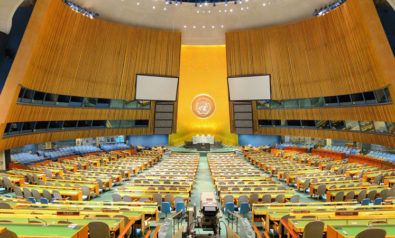




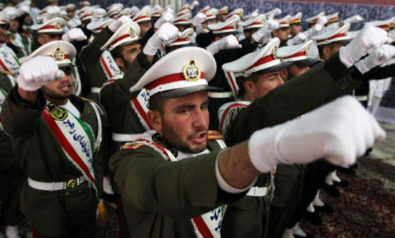



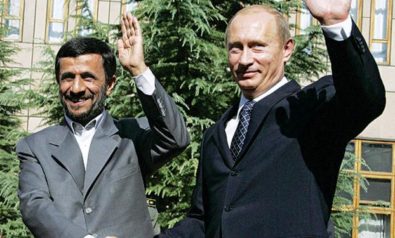


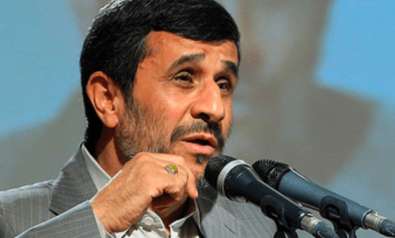



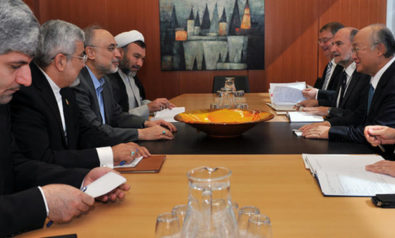

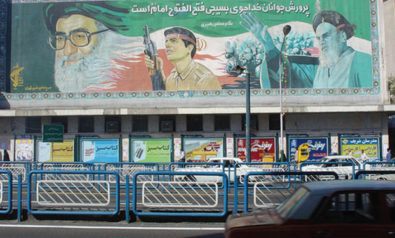

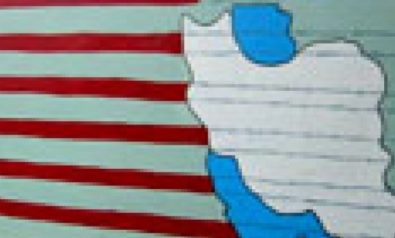

Comment